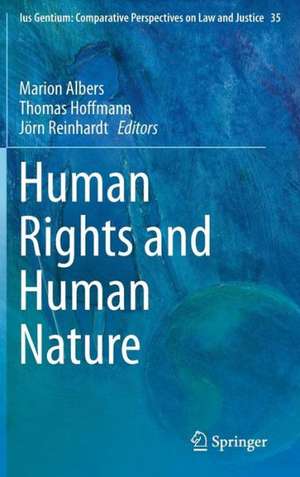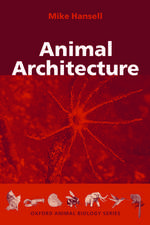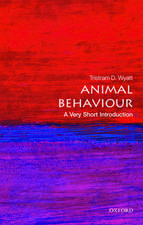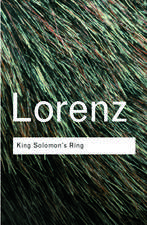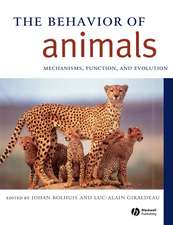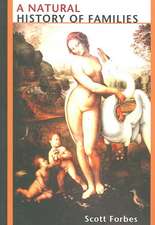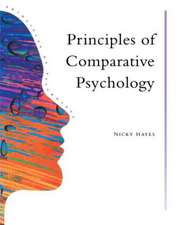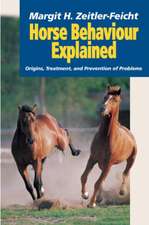Human Rights and Human Nature: Ius Gentium: Comparative Perspectives on Law and Justice, cartea 35
Editat de Marion Albers, Thomas Hoffmann, Jörn Reinhardten Limba Engleză Hardback – 6 mar 2014
| Toate formatele și edițiile | Preț | Express |
|---|---|---|
| Paperback (1) | 639.73 lei 6-8 săpt. | |
| SPRINGER NETHERLANDS – 3 sep 2016 | 639.73 lei 6-8 săpt. | |
| Hardback (1) | 645.96 lei 6-8 săpt. | |
| SPRINGER NETHERLANDS – 6 mar 2014 | 645.96 lei 6-8 săpt. |
Din seria Ius Gentium: Comparative Perspectives on Law and Justice
- 20%
 Preț: 1128.16 lei
Preț: 1128.16 lei - 20%
 Preț: 1565.18 lei
Preț: 1565.18 lei - 18%
 Preț: 1115.28 lei
Preț: 1115.28 lei - 18%
 Preț: 904.28 lei
Preț: 904.28 lei - 18%
 Preț: 1001.81 lei
Preț: 1001.81 lei -
 Preț: 180.18 lei
Preț: 180.18 lei - 24%
 Preț: 787.31 lei
Preț: 787.31 lei - 18%
 Preț: 1115.28 lei
Preț: 1115.28 lei - 15%
 Preț: 635.31 lei
Preț: 635.31 lei - 18%
 Preț: 1108.67 lei
Preț: 1108.67 lei - 18%
 Preț: 1007.97 lei
Preț: 1007.97 lei - 18%
 Preț: 784.79 lei
Preț: 784.79 lei - 18%
 Preț: 1223.11 lei
Preț: 1223.11 lei - 18%
 Preț: 891.02 lei
Preț: 891.02 lei - 18%
 Preț: 1009.40 lei
Preț: 1009.40 lei - 18%
 Preț: 1005.74 lei
Preț: 1005.74 lei - 18%
 Preț: 1014.89 lei
Preț: 1014.89 lei - 18%
 Preț: 896.70 lei
Preț: 896.70 lei - 15%
 Preț: 641.85 lei
Preț: 641.85 lei - 18%
 Preț: 779.71 lei
Preț: 779.71 lei - 18%
 Preț: 1010.79 lei
Preț: 1010.79 lei - 18%
 Preț: 1010.03 lei
Preț: 1010.03 lei - 18%
 Preț: 950.52 lei
Preț: 950.52 lei - 15%
 Preț: 638.76 lei
Preț: 638.76 lei - 18%
 Preț: 947.50 lei
Preț: 947.50 lei - 20%
 Preț: 564.78 lei
Preț: 564.78 lei - 18%
 Preț: 1115.14 lei
Preț: 1115.14 lei - 18%
 Preț: 939.42 lei
Preț: 939.42 lei - 15%
 Preț: 635.80 lei
Preț: 635.80 lei - 15%
 Preț: 637.59 lei
Preț: 637.59 lei - 15%
 Preț: 643.65 lei
Preț: 643.65 lei - 24%
 Preț: 809.18 lei
Preț: 809.18 lei
Preț: 645.96 lei
Preț vechi: 759.96 lei
-15% Nou
Puncte Express: 969
Preț estimativ în valută:
123.60€ • 129.06$ • 102.07£
123.60€ • 129.06$ • 102.07£
Carte tipărită la comandă
Livrare economică 15-29 aprilie
Preluare comenzi: 021 569.72.76
Specificații
ISBN-13: 9789401786713
ISBN-10: 9401786712
Pagini: 260
Ilustrații: VI, 274 p.
Dimensiuni: 155 x 235 x 22 mm
Greutate: 0.57 kg
Ediția:2014
Editura: SPRINGER NETHERLANDS
Colecția Springer
Seria Ius Gentium: Comparative Perspectives on Law and Justice
Locul publicării:Dordrecht, Netherlands
ISBN-10: 9401786712
Pagini: 260
Ilustrații: VI, 274 p.
Dimensiuni: 155 x 235 x 22 mm
Greutate: 0.57 kg
Ediția:2014
Editura: SPRINGER NETHERLANDS
Colecția Springer
Seria Ius Gentium: Comparative Perspectives on Law and Justice
Locul publicării:Dordrecht, Netherlands
Public țintă
ResearchCuprins
Contents.- About the Authors.- Introduction; Marion Albers, Thomas Hoffmann, Jörn Reinhardt.- I The Role of Nature in Human Rights Discourse - Foundations and Limitations.- 1 The Double Foundation of Human Rights in Human Nature; Corinna Mieth.- 2 Human Rights and Human Animals; Bernd Ladwig.- 3 Human Rights, Human Dignity, and the Human Life Form; Thomas Hoffmann.- 4 Rethinking Human Nature as a Basis for Human Rights; Harun Tepe.- 5 The Relationship between Human Nature and Human Rights. The Confu-cian Example; Mateusz Stępień.- 6 The Natural Faculty of Empathy as a Basis for Human Rights; Frederik von Harbou.- 7 Human Rights and Basic Needs; Peter Schaber.- 8 Human Rights Beyond Naturalism; Arnd Pollmann.- 9 Human Rights, Human Nature and the Feasibility Issue; Jörn Reinhardt.- II Species manipulation and the transformation of human nature Challenges to human rights.- 10 How to Protect “Human Nature” – by Human Dignity, Human Rights or with “Species-Ethics” Argumentations?; Georg Lohmann.- 11 Species, Potentiality and their Manipulation; Markus Rothhaar.- 12 Collection of Human Tissue Samples in Biobanks: Challenges to Human Rights; Bianka S. Dörr.- 13 The Body, the Law and the Market: Public Policy Implications in a Liberal State; Ingrid Schneider.- 14 Should Society Guarantee Individuals the Right to Maintain “Normal Functioning”?: A Genetic Minimalist Approach in a Globalized World; Tetsu Sakurai.- 15 Enhancement, Human Nature and Human Rights; Marion Albers .- Index.
Textul de pe ultima copertă
This book explores both the possibilities and limits of arguments from human nature in the context of human rights. Can the concept of human nature provide a basis for understanding fundamental rights? Is it plausible to justify the claim to universal validity of human rights by reference to human nature? Or does the idea of human rights in its modern, post-1945 manifestation go, in essence, beyond human nature? The essays in this volume introduce naturalistic positions and their concomitant critiques. They address the role that human nature both actually does and potentially may play in forming a foundation for and acting as an exemplification of fundamental rights. Beyond that, they give attention to the challenges caused by Life Sciences. Human nature itself is subject to transformation and transgression in an unprecedented manner. The essays reflect on issues such as reproduction, species manipulation, corporeal autonomy, and enhancement. Contributors are jurists, philosophers, and political scientists from Germany, Switzerland, Turkey, Poland, and Japan.
Caracteristici
First volume to provide a comprehensive overview of naturalistic accounts on human rights Addresses the role that human nature plays in the foundation of human rights Provides clear insights as to how transformations of the human affect the idea of human rights Highlights how human rights theory is being informed by current legal, ethical and medical issues Includes supplementary material: sn.pub/extras
